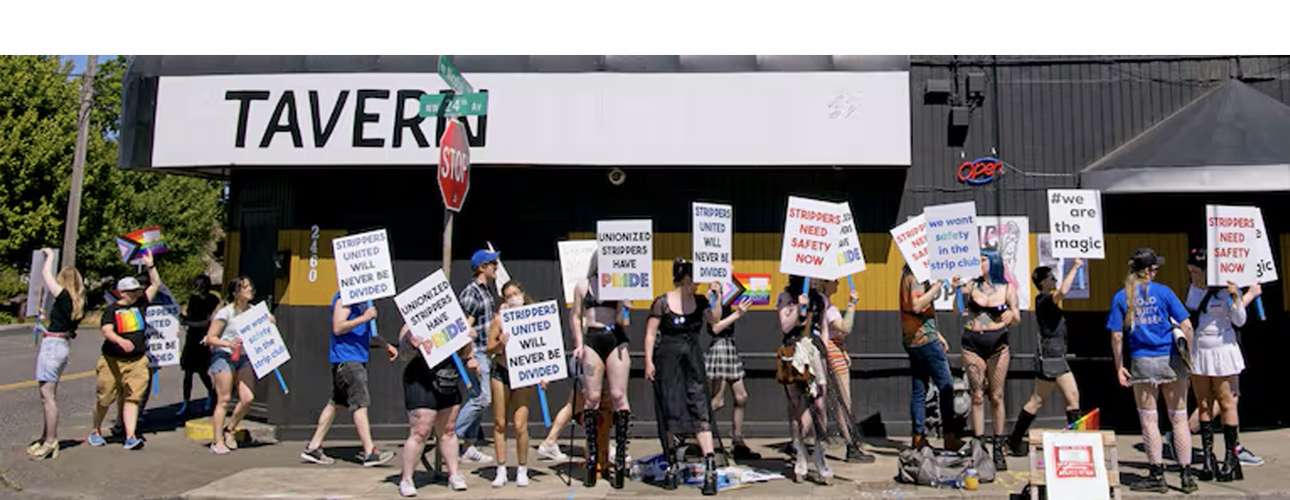NWJP Helps Exotic Dancers Win Precedent-
Setting Misclassification Ruling in Federal Court
Earlier this year, US District Court Judge Marco Hernandez issued a precedent-setting opinion finding that two of NWJP’s clients who worked as exotic dancers were misclassified as independent contractors. Two decisions by Oregon courts, one federal and one state, had previously found exotic dancers to be independent contractors despite a near national consensus that dancers should be classified as employees.
Over a decade ago, NWJP realized these decisions were depriving Oregon dancers of minimum wages and protections from harassment and discrimination, and we got to work engaging this community that has been stigmatized and under-supported for too long.

Despite many misconceptions, Portland’s dancers are often not highly compensated. They are working hard for tips and private dance fees from customers at nearly any hour of the day and throughout the week. They are required to pay fees to the clubs where they work and must share their tips with DJs and bouncers to ensure their physical safety and equal time on the stage. Clubs often enforce a wide variety of rules about dancers’ conduct, appearance and working schedules. Dancers are vulnerable to sexual assault and race discrimination by both patrons and club staff.
In 2014, NWJP’s legal team began to do outreach to inform dancers of the rights we believed their employers were denying them. As all organizers know, building trust with communities takes time. For years, clubs worked to convince dancers that they were better off as independent contractors. This led many dancers to initially reject our support. But we continued to plant the seeds that exotic dancers deserved employee protections and that we would be ready when called upon to enforce them.
Fighting Back
Then, in 2020, during COVID lockdowns and the national uprising against police brutality, Portland’s dancers began to organize to stop race discrimination in the clubs. When the leaders of that movement and other dancers who took a stand were fired, NWJP was ready to defend their rights to organize. The dancers bravely told their stories in seemingly endless depositions and to the National Labor Relations Board, who agreed that our clients were misclassified employees and extended protections to many of them. Then, we brought lawsuits to enforce their rights as employees to protection from wage theft, sexual assault, and retaliation.
“Legal and economic justice are not accepted as inalienable rights for members of the sex work community; we are often dismissed due to the societal niche we occupy. Navigating the legal world is intimidating, time consuming, and requires resources that many of us do not have access to. That’s why I am so grateful to NWJP for the work they do. They spent four years tirelessly advocating to make my voice heard, and together we were able to set legal precedent that will protect the rights of sex workers for years to come.”
-NWJP’s client, appearing in court as Jane Doe
Despite Judge Hernandez’s decision clarifying their rights to employment protections, Oregon’s exotic dancers are still being misclassified. But our clients risked blacklisting and being identified publicly to lay the groundwork for future Oregon dancers to claim the protections they need to be safe and economically stable at work. And the ripple effects are still spreading, as dancers successfully unionize their workplaces in Portland and across the country.
